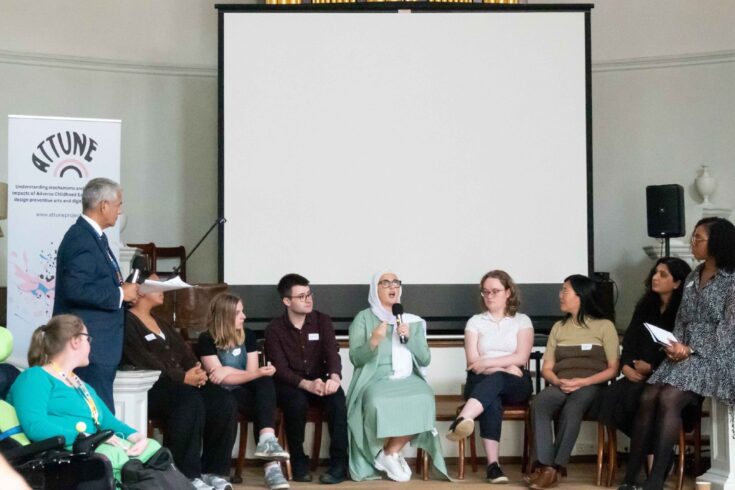Adverse childhood experiences (ACEs) are overwhelming and frightening times in childhood, including parental conflict, racism, abuse, violence, poverty and many more.
It is well evidenced that young people who have experienced childhood adversities are at greater risk of developing severe mental and physical health needs. Three in four young people exposed to multiple ACEs develop significant distress and mental health disorders as young adults, including anxiety, depression, and post-traumatic stress disorder.
We do not fully understand what makes a young person vulnerable to, or protected from, mental health problems following ACEs. Nor do we know how to best protect and support affected young people, many of whom struggle to find and engage with care services.
Understanding young people’s life experiences
Asking young people about adversities is crucial in understanding their life experiences, how it shapes their lives and impacts their mental and physical health. Therefore, when asking young people about ACEs, it’s important that this is conducted in a safe environment with support available for young people.
ATTUNE is a research project using arts-based approaches to understand how ACEs can affect young people and what we can do to help. The project began in September 2021 in the Department of Psychiatry at University of Oxford. It aims to address the current gaps in knowledge and support by placing young people’s lived experience at the centre of the project.
The project is a novel interdisciplinary project comprising of over 10 institutions and organisations, including academics, clinicians, scientists, game developers and artists.
Our research questions and focus
At ATTUNE, we examine the following questions:
- how do young people define and explain mental health and wellbeing, and ACEs?
- what are the lived experiences by which ACEs in diverse young people unfold to affect or protect their mental health?
- do creative and participatory arts approaches help us understand ACEs and take cost-effective and helpful actions for prevention and care interventions?
The project focuses on young people aged 10 to 24 residing in rural, urban and coastal communities in Cornwall, Oxfordshire, Yorkshire, Buckinghamshire, Kent and London. There are a range of challenges that young people who live in these communities face. As such, it was important that a good representation from young people living in these communities were recruited to participate and share their lived experience.
Using a mixed-methods approach, the study involved six different phases that ran concurrently:
- explore the lived experience of young people exposed to ACEs through arts workshops
- analyse the best methods to explain mental health outcomes following ACEs
- produce public mental health resources to help support and understand adolescent mental health
- involve the development of a mobile video game that reflects young people’s experiences of ACEs
- identify key economic impacts ACEs and preliminary cost-effectiveness on the delivery of the mobile video game
- share findings with young people, clinicians, communities, policy and decision makers to produce guidance on care for young people following ACEs
What we found
Our findings suggest that young people experience adversity in different ways than the traditional definition of ACEs and seek out self-soothing mechanisms naturally, such as pets, nature and creative arts.
Through the project, we have collected a large art portfolio of curations from the participants. This includes drawings, paintings, animations, musical compositions, photographs and more of adversities and experiences that young people have experienced.
Invalidation was a consistent theme throughout participants. This led to the creation of a public health resource, Validating Voices, around recognising invalidation and how to incorporate validating behaviours in settings that work with young people.
Insights from the evaluation of our mobile video game, Ace of Hearts, suggest that with further optimisation and increasing replayability, it could be a useful tool for young people. It can be used to improve their mental health as well as a resource that can enable young people to understand what their peers may be experiencing.
What is next?
Going forward the ATTUNE team is looking to conduct a randomised controlled trial to implement and evaluate the Ace of Hearts game.
We also want to develop new programme bids utilising the importance of arts for young people’s mental health. We are actively working towards advocating the benefits of co-design and having young people directly involved with the project.
We are thankful to have been granted a six month no-cost extension, allowing us to work on finishing analysis and write up until 28 February 2026.
You can listen to the ATTUNE project podcast on Spotify.
The ATTUNE team is grateful to our funders for supporting this project:
- UKRI
- Medical Research Council
- Economic and Social Research Council
- Arts and Humanities Research Council
For more information on the project please email Principal Investigator, Professor Kamaldeep Bhui at kam.bhui@psych.ox.ac.uk




